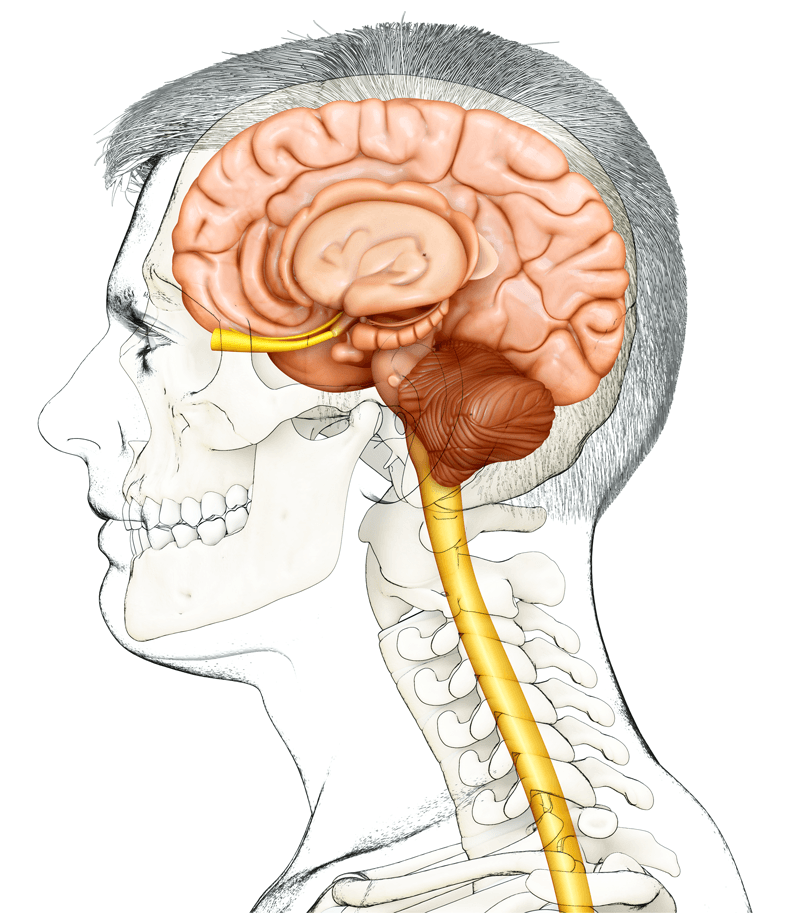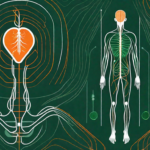At times, you might feel stressed and overwhelmed. Well, you’re not alone. We all have been down that road when we feel it’s too much and wants to get the burden off our shoulders. In fact, stress is inevitable for a human being. It is actually a normal response of the body when faced with a stressor (job loss, important meeting, meeting). Remember, not all stress is bad, some are positive too. For example, the feeling of danger — which is stress — keeps you safe and alive. If this feeling vanishes, you might commit harmful acts without any fear. However, if you’re under stress for a prolonged period, you’re likely to experience negative mental and physical effects. But don’t worry! In this article, I’ll share a scientifically proven method that can help you fight off stress and rewire your brain.
What Is Vagus Nerve?
So, the question is ― how do you troubleshoot yourself after a period of stress? Well, you’d be surprised to know that there is a counter mechanism in your body that can help you overcome stress responses. It is the vagus nerve system that counterbalances the stress response in the body. The vagus nerve is one of the twelfth cranial nerves in the body that link different parts of the body with your brain and is termed cranial nerve X. It is a key part of the parasympathetic nervous system —also referred to as “rest and digest” nervous system. It is the longest cranial nerve that runs through different parts of the body including the brain stem through organs in the neck, throat, heart, thorax, and gastrointestinal tract. Therefore, it has a profound impact on the functions of these organs. The vagus nerve influences your breathing, intestinal motility, and heart rate while also performing reflex actions such as coughing, sneezing, and swallowing.
The word vagus is derived from Latin which translates into “wandering” which is in a way an appropriate term for the vagus nerve as spreads to different parts of the body. These nerves perform both sensory and motor functions in the body. Sensory functions refer to your sense of taste, smell, and sound that the brain perceives from its environment whereas motor functions control various muscles and glands. As the vagus nerve is a key part of the “rest and digest” nervous system, this means that your body will return to normal sooner after experiencing stress. Now, how can we influence the vagus nerve to calm ourselves? Well, the key is the “tone” of your vagal nerve. Vagal tone indicates the activity of the vagus nerve. If you can achieve a better vagal tone, this means that your vagus nerve will perform its activities in a better way.
What is Vagus Nerve Stimulation?
Vagus nerve stimulation is a technique to improve your vagal tone. There are two main ways to stimulate your vagus nerve: natural, and medical devices. Natural methods involve vagal nerve exercise to alleviate stress, anxiety, and migraines. The other method employs surgically-implanted devices that transmit electrical signals periodically to stimulate the vagal nerve. This method is approved by the US Food and Drug Administration (FDA). Significant scientific evidence highlight the beneficial effect of vagal stimulation in alleviating stress, anxiety, and inflammation. A study published in 2013 has highlighted the role of vagus nerve stimulation in epilepsy treatment and lowering anti-inflammatory cytokines. However, if you just want to ward off your stress levels and reset your brain then natural vagal nerve exercises are best for you.
Vagal Nerve Exercises To Reset Your Brain
There are several ways you can improve your vagal tone and its functionality. All the explained methods can be easily practiced without any significant help to good effect.
- Deep/slow belly breathing.
- Cold therapy
- Deep and slow breathing
- Singing, Humming, Chanting
- Gargling
- Intermittent fasting
- Probiotics
Cold Exposure For Vagal Activation
Physical activities increase the sympathetic ― fight or flight ― response in the body while it suppresses the parasympathetic ― rest and digest ― system. This results in an increased heart rate in the body. Cold water emersion seems to reactivate the “rest and digest” system which lowers heart rate and reduces stress. A study conducted by Manuela Jungmann in 2018 revealed that cold exposure reduces heart rate which could be a way to deal with stress and anxiety. You can start this method by just washing your face with cold water. Here is a way to do it ― take cold water ranging between 10-12 °C and immerse your face in it. This is probably the simplest exercise that you can adopt at home to get activate your vagus nerve. Once you’ve achieved this, you can gradually move to the next step like taking a cool shower for 30 seconds on daily basis.
Stimulate The Vagus Nerve Through Breathing
Breathing has been a well-known tool to get relaxation for centuries. One such example is ‘conscious breathing’ which has been practiced by Tibetan monks for enlightenment. Although breathing is a normal process that we perform all the time but the way you breathe is crucial for optimum results. Let me explain this further. Deep and slow breathing stimulates the vagus nerve. How can you achieve it?
- First, slow your breathing. A normal person takes 10-14 breaths per minute. You should aim for 6 breaths per minute to stimulate your vagus nerve.
- Breathe deeply from your belly which should expand your stomach and widen your ribcage.
In the last step exhale from the mouth instead of the nose. Exhale longer than you inhale and slowly because this will trigger the relaxation response. - As you slow your breathing, your body activates parasympathetic mode which will result in relaxation. As your oxygen intake also improves, your body produces endorphins which are natural pain killers. This further supplements the relaxing effect of deep breathing.
Activate Throat Muscles By Loud Singing, Chanting, and Gargling
As I have mentioned before vagus nerve is connected to your throat. So, activating throat muscles can stimulate the vagus nerve. Loud singing, chanting, and gargling can stimulate a vagal response. A study published in the International Journal of Yoga in 2011 reported that “OM” chanting results in more vagal activation than rest state. The correct way to do it is to hold the ‘Ooo’ sound for a few seconds then finish with a long ‘Mmm’ sound. This activity can be done for 10 minutes. Gargling water before swallowing activates vocal cords that stimulate the vagus nerve.
Massage
Massage can increase vagal tone and vagal activity and could be a great vagus nerve exercise for anxiety. Although the vagus nerve can be stimulated by massaging different parts of the body, the best way is foot massages. They can modulate the vagal response while lowering heart rate and fight and flight response. My best advice is to get a massage from a professional at least once a month.
Why Laughter Is the Best Medicine?
Laughter and socialization lower the levels of cortisol, the main stress hormone in your body. Apart from this, it is also a good vagus nerve relaxation exercise. Scientists believe that laughter improves mood and keeps the heart rate healthy. A study published in 2018 claimed that hearing laughter can result in a relaxation effect after a stress response. Another thing is that laughter is also a by-product of vagus nerve stimulation. So an easy way to reboot yourself is to socialize with your friends and have a good laugh.
Intermittent Fasting Improves Vagal Tone
Apart from improving vagal tone, intermittent fasting has a ton of other health benefits. A study has highlighted that caloric restriction increases heart rate variability, an indicator of parasympathetic activity and vagal tone.
Probiotics
Do you know where your feel-good hormone, serotonin is produced? Well, this might be an interesting fact for you almost 95% of your serotonin is produced by your gut bacteria. New research has shown that our gut influences how we feel. The composition of bacteria in our gut impacts our thinking through the vagus nerve. Probiotics are beneficial bacteria that can be taken orally and increase the overall healthy bacterial count in our intestines. So, probiotics if taken through food can improve vagus function, thus affecting our brain positively.
Conclusion
Vagus nerve health is crucial for your overall wellbeing. As this nerve is one the largest nerves in the body, it influences various functions such as breathing, heart rate, and reflex response like coughing and sneezing. Vagal nerve tone and stimulation are very important for their functionality. Vagal nerve stimulation can be achieved by natural as well as through surgical device implantation. Natural ways to improve vagal tone include deep breathing, cold baths, loud chanting, singing, humming, and adding probiotics to our food. All these techniques are easy to practice and can maintain optimum vagal nerve health which is crucial to fighting off stress, depression, migraines, and anxiety disorders.


